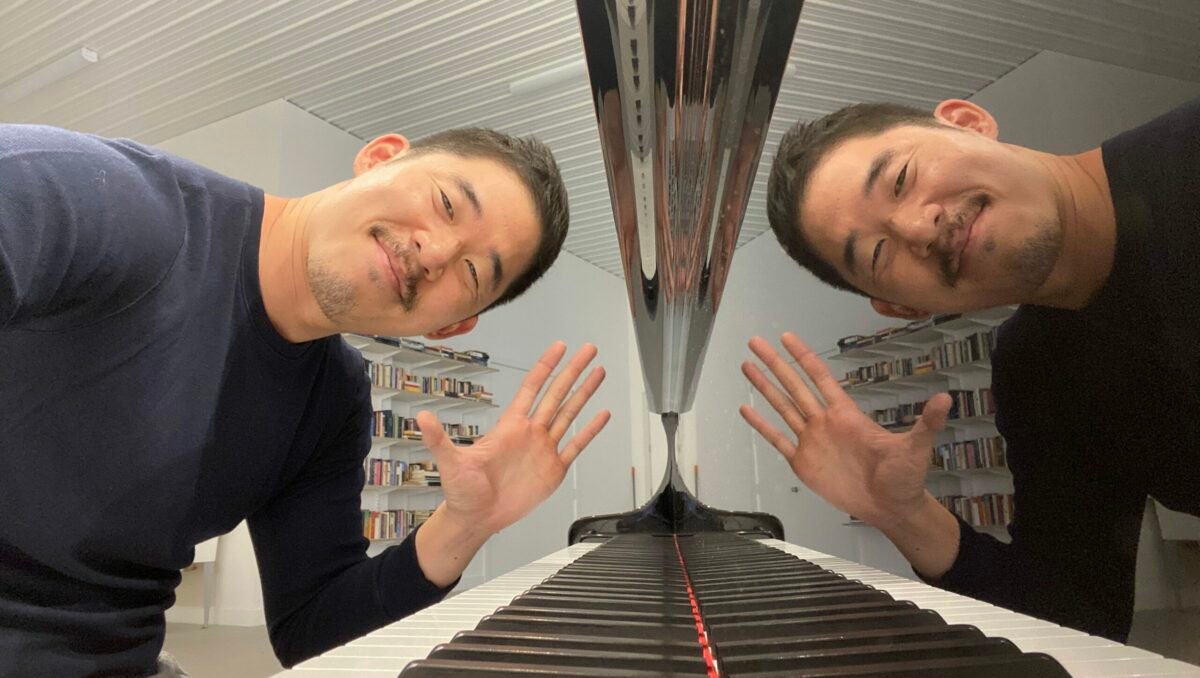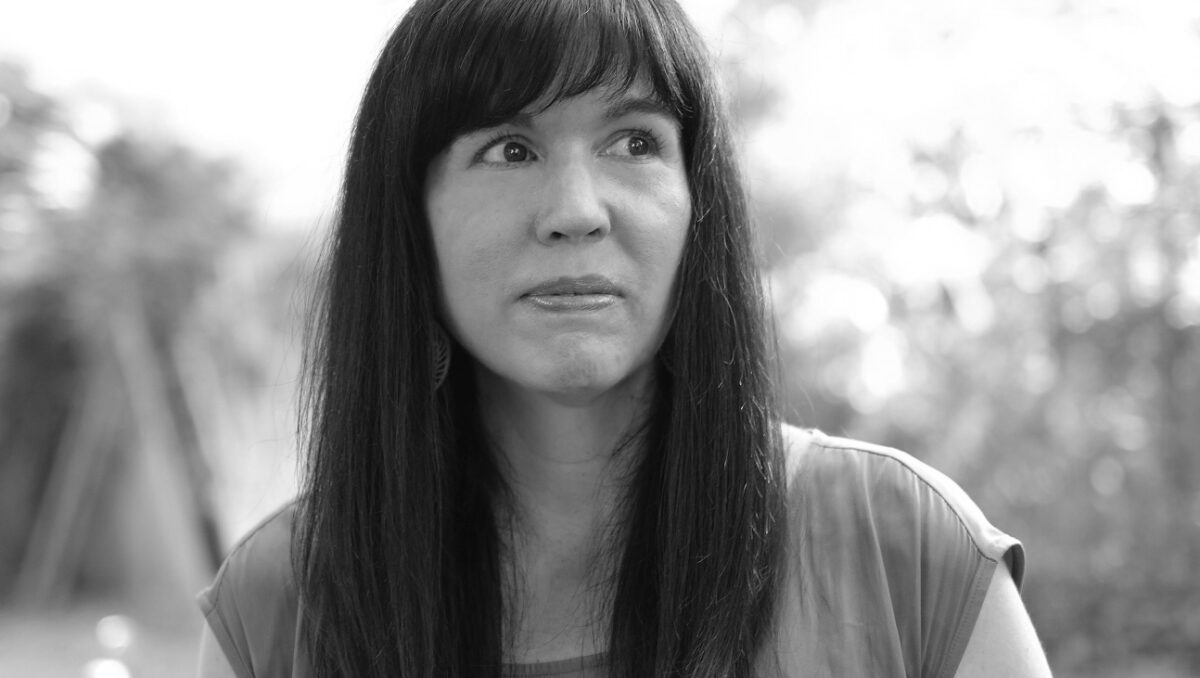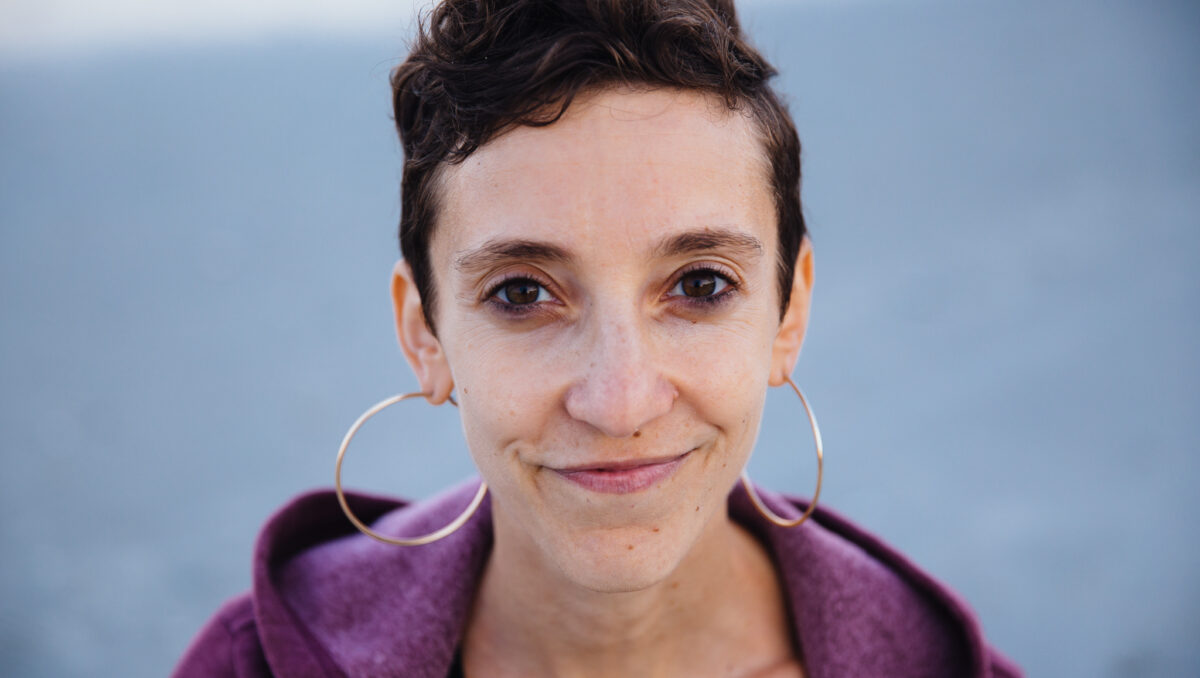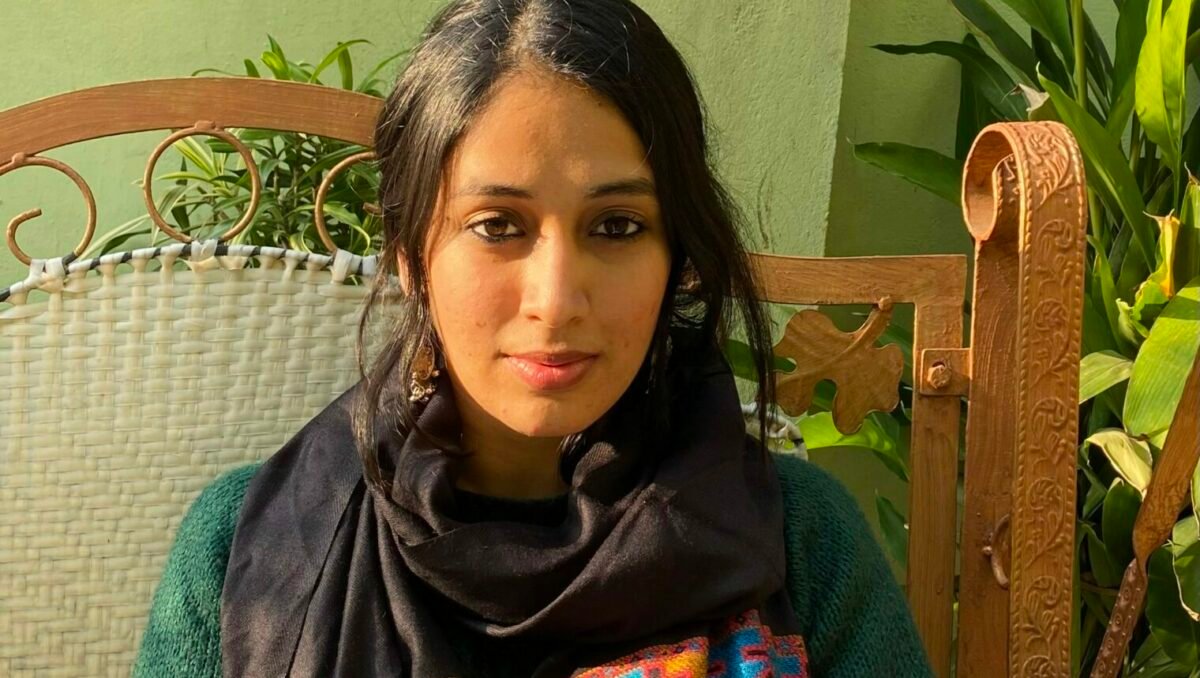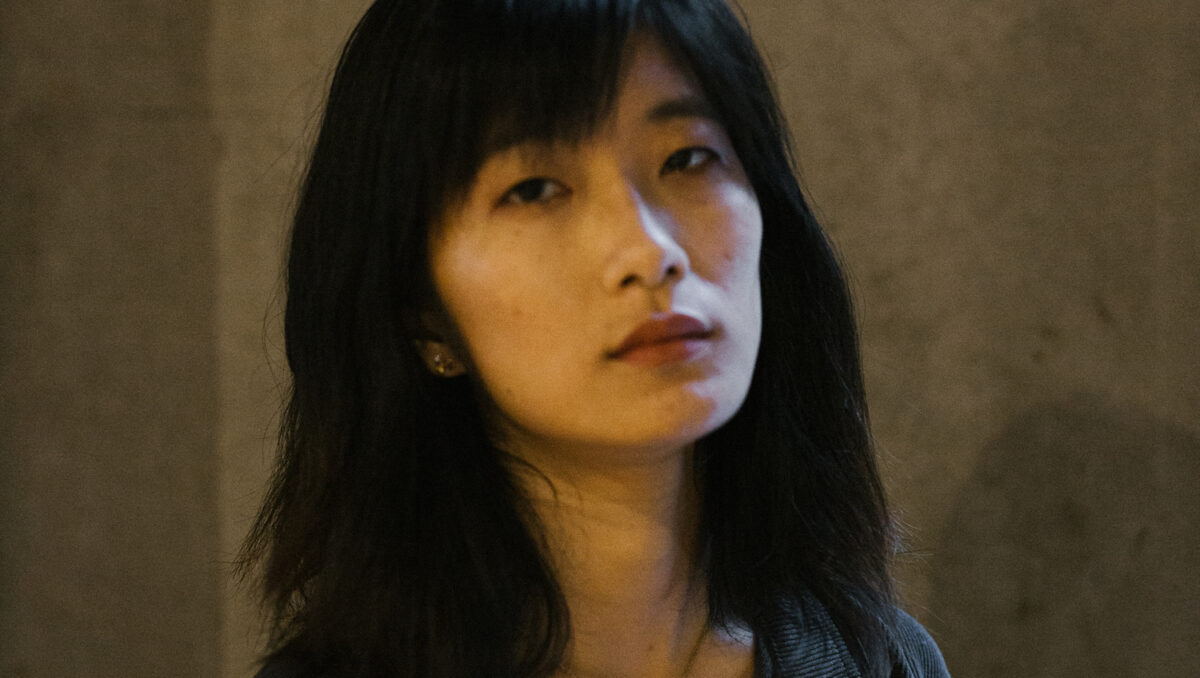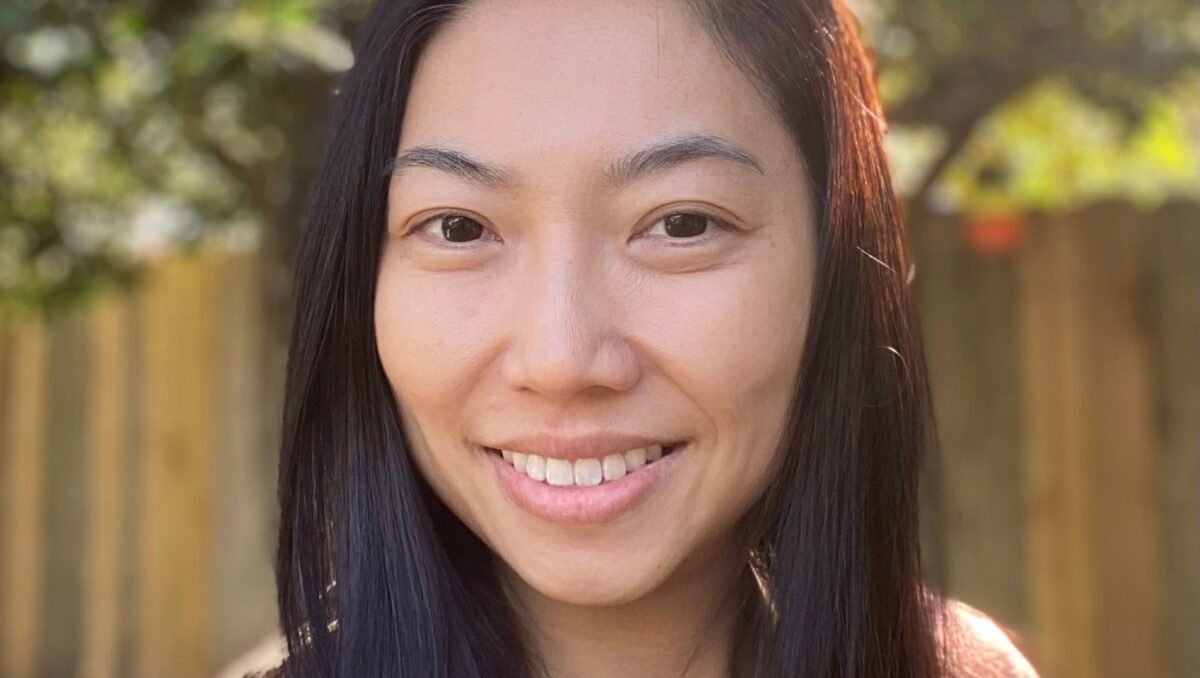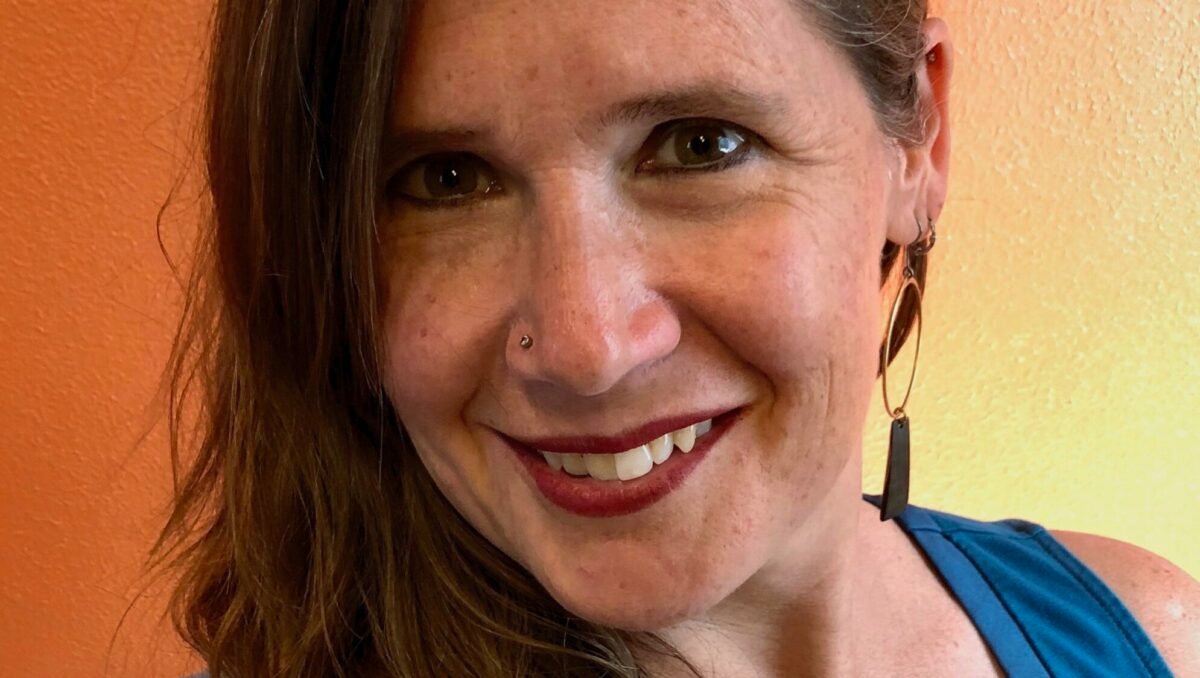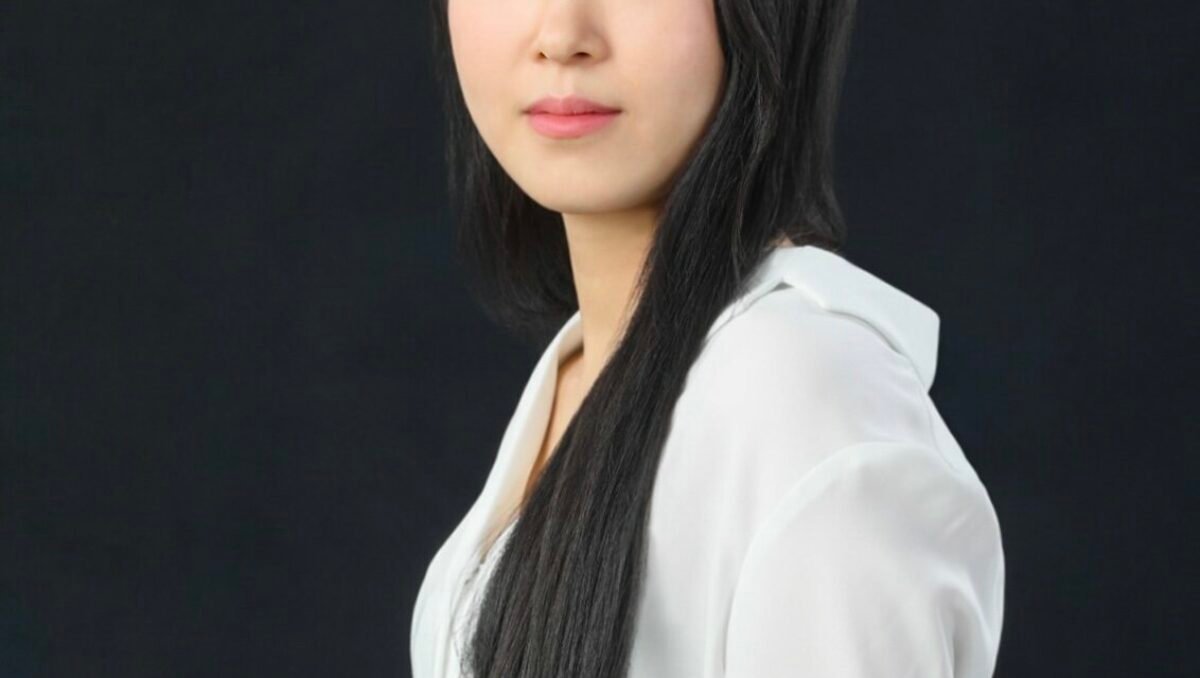THE PLEASURE IS IN THE WORK by Stella Hayes
Books I put up next to you.
As close as I can without belonging. Gods in awe of other gods.
Digging up love as new each time.
As I show a willingness to love
You in one lifetime. Rodin’s marble back.
A fragment in my hand.
How you contract in me.
This is what I know. I am here alone.
Death is only good at one thing.
- Published in ISSUE 25
GEOMETRY by Karen Kevorkian
Small motors for taming grass moan, the day not so hot, in the Times the columns of the dead are short ones
dried fronds droop at the tops of palms, brown petticoats to fall on walkers as Santa Anas send husks flying
the dream with a bride upended, long white veil trailing
a dance performance where Apollo and muses create expertly crafted geometry with their bodies
meeting the friend not seen for a long time, her tanned and lipsticked face, amiably she removes a sleek wig from her bald skull
it makes me so hot, little sounds with the mouth like water stumbling
past café windows green and black snakelike leaves, brushstrokes from a phallic era of painting, crow feathers’ seismic rustling
gray ficus trunks easy to carve into, names overlay names, roots coiled inconveniently above ground slashed to fit corridors between sidewalk and curb
here in my body it feels crowded, bottles slithering in a recycle truck, cataracts of glass
- Published in ISSUE 25
TWO POEMS by Jimin Seo
from Crown for Peasant Heads
X.
|
그 니 없 건 당 |
You are not there as a matter of course. Your light comes through this minimal |
땅 파고 지랄 떠는 그 새끼
My language is a worry
the world can’t convince
me I’m right.
I’m a man who hugs
head-cocked
into an abacus. I kiss
the dirt with my knees,
count the last bar
of my wife’s song.
I lose my wife
to a bet. Hang
a sign she can’t see
on her wrist. Tie
up her hair
in a pony
knot, yoke her
to a marketplace,
give up my riches.
My wife gives
children I wanted
and dies.
Pay off my debt,
debtor. Move her to a vault
where no fault
is this honest: endless
green beauty
with lightning streaks,
an odor of doubt
brocaded on my coat.
A bastard digs his own pothole.
- Published in ISSUE 25
from PSALMS OF LAMENT FOR DIVINE IMPERATIVES by Jennifer Metsker
You’re a bluffing a color-matching.
Fingers on the breeders cup.
You’re the gentle way that oxen pull a carriage
through a needle while people movers move people
into the breach into the Paraguay swampland love
green love the reptiles and brushwork so pretty.
You’re the movement of a letter
from one side of a corridor to the other.
In the matchbox hour cars cruise by and leave me. I must
carry water carry paper carry my life in little packages
upstairs. Delivery is a method. Disguise is a method.
I place a bid on a haunted dresser emboldened strident.
I just wanted someone to live with.
If the wayfinding
if the great wall if the subway if there are no safe
destinations then voices in my head are set to music
and they run amok in the shadows naked.
There’s no use reckoning with the irritable television.
Faces sit on necks and necks plummet into dresses.
The number on my chest breathes in horoscopes and
exhales a model train kit. But the formatting
isn’t quite right. Fix the fingers with a splint.
Can you be ready in a minute?
When I want to touch stars and
there are no arms to catch me I arrive
by night carriage and step down all pageantry into
quintessential wide night sky.
- Published in ISSUE 25
THREE POEMS by Mónica Gomery
CONSIDER THE WOMB
With lines from Ewa Chrusciel, Nicole W. Lee, and the Babylonian Talmud
Consider womb as a bird.
Uterine lining lifting a wing as it rots the pink walls.
Consider womb as a flickering candle.
There has to be somewhere from where words are born.
If they’re born, do we mother them?
I’m not sure if I mother the words, or if they mother me.
I want to push books from my cervix.
Consider levies and dams can’t contain the red mind of the storm.
Consider sex as a contract between two menstrual parties.
I dream of our daughter a fourth night. Now she is learning to speak.
There are words born from her too. From her nonexistence.
Consider blood loves its own wickedness.
Blood turns new wine sour. Blood barrens a crop.
Blood clouds the mirrors and blunts the knife blades.
Consider milk is forbidden to the bleeding.
Consider that those who bleed are not only women.
Bees fall victim to the odor of menses, drop from their hives.
Iron and bronze become groggy and rust-eyed in the presence of matter discharged from the uterus.
Consider a place where the unbirthed babies live out their days.
It might be better than this savage world.
As a result of sexual pollution, a man vomits persistently.
As a result of childlessness, a woman becomes a goat.
Fecundity, what is it? Vault, octopus, womb.
Thesaurus: a place that births words.
On Thesaurus.com, womb can mean: hollow or void; chasm or cavity.
For God’s sake, it can mean hiatus, or tabula rasa.
Interior, viscera, matrix, or source.
Uterus, incubator, ink blot scribed by goat mothers.
Consider guilt as a womb. Consider the red badge of shame.
Even my brother says to me, I can’t help feeling medeival about it–– the end of our line.
In my tradition, sexual abstinence flows after blood.
In Hebrew, dam is one half of the word for adam: human being.
Maybe, as the child of immigrant children of immigrants, womb is the forgotten country.
Or, the forged country.
Sangre in Spanish from Latin: sanguen, meaning ruddy, or optimistic.
Maybe I’m considering not having a child so I’ll always have something to write about.
Words born from the womb of the mind.
After we’ve all read Mary Douglas.
After reading Nicole: If earth is female,
and we return to the dirt,
is death a mother?
Consider fecundity as the persistence of question.
The question:
What is a womb?
Opal, birthstone of October, feels like a womb.
Glittered and dense, but clear like the ocean.
Ocean, birthplace of sentience, feels like a womb.
Bellied and blue, and delivering mystery.
Miriam, prophetess, her fingers making a pilgrimage through my hair.
Through the hairs of song that slip from my throat.
Torah is silent about both her marriage and children.
She gave birth to singing, crossing a sea in the desert.
Was it enough?
Consider womb as a song.
Consider a prophetess. Her mouth open.
Leading her people to freedom.
DEATH IN SPRING
Death in spring.
Mutinous birds.
The message
comes first thing
in the morning. Gall
of the jaundicing
sun, rising sky.
Quiet. Car engines.
Wisecrack
of your blue
hair. Lamplight
of you. Death
in spring. Trees
everywhere losing
control, inky
knuckles, pink lace.
Trees unbutton
brown coats, green
sequins revealed.
Cracked bowl
of you leaking.
Death in spring.
Wind readying
to collect you
as you drip
away. God
with you some-
where, beyond
the language
spring speaks.
All the questions
you’ve asked
about God,
with you now
in the place
beyond what
the birds know.
And us, saying
your name
in the morning.
Saying your name
and the birds say
your name.
And the quiet
creates a blank
line. We sign
your name
to it. Memories
of you, wiping
your eyes
with the
stars.
AFTER THE WEDDING
I fold my limbs onto the moss
of a rock, left plain in the forest,
big as two of me, spooning.
The sunlight aurous and hazel, filters in
through hundreds of limbs, every spore,
every stone of the woods
rung and lucent.
I married this forest. I married
the strip of highway you loved
to jog when you were a teenager.
I married the blue bowl of the sky
and I married the shred of ache
at the heart of the world, where mass
shooters and abortion clinicians
have been hurling themselves
to the gate. Unsearching a wall.
Where all this pain and light
drain from, and towards.
I’m sorry, I say
to the trees, inhaling
the gold of the forest.
I’m so sorry.
I think I’m not
having a child.
A thrum, the trees
crystalline, limby. They inhale
and exhale, sway softer
than Sundays.
A ladybug crashes
into my knee.
I am small.
Drinking the trees’
breath. Married
to everything.
- Published in ISSUE 25
IN THE END, THE ALEFS CURL by Iqra Khan
into ل ’s and Allah is
a mutilation
of meaning in
prayers are refrains
of nursery rhymes the children
draw a fighter
plane below
names of the extinct
birds and emperors
cross the Indus
for mangoes— light
sweetened, sweating
golden sun-
-flower stalks
the indigo labourer
on her way to where the day’s
poems are powdered to
an ellipsis pierces tales of djinn
a Hazara mosque erupts
in pigeons a boy
somersaults across embellished
Mecca, Mecca!
If you are home
to God and only
hours
from Jerusalem send
a message where
the map is still
green with olives. Look there, love
is a thing
farther
than the bloody moon
where nuclei cannot be
split daily
bread and pomegranates
with me, jaana, bite and
savour these
tautened globules
of blood on tongues
I know one thing:
it alefs,
and it alefs.
- Published in ISSUE 25
[MY GRANDFATHER WALKED IN THE SNOW] by Cleo Qian
after Cathy Linh Che
My grandfather walked in the snow
With his green jacket
& plastic bag
On the balcony we built
a short snowman
with a cold carrot
My grandfather had a very thick
head of hair
Long eyebrows…bright eyes
He told us stories
He made us toast
He fought in the war
He knew the word “MONSTER”
And also “HELLO, EAT”
What kind of man was he
A short man
With a long walk
Good at walking
He could walk and wait
for a long time
What kind of man was he
He had brown hands
A dark mole
A deaf ear
He fought in the war
He wrote stories
Smoked cigarettes
Played solitaire
He had a green jacket
What kind of man was he
He had a secret family
He had a sharp and surreptitious
brain
What kind of man was he
Dead now
A gone man
What kind of man was he
He walked in the street below
To fill his plastic bag with snow
- Published in ISSUE 25
GHAZAL NO. 2 by M. Cynthia Cheung
Silks traveled through many hands, starting in the Orient.
Don’t tell me, love, God made the stars for us to orient.
Before we ever started, war gathered across continents.
Still, love, I’d forgotten your penchant to disorient.
Your ash rains again from the west, blotting the lords of the sky.
Tell me how to set fire to pearls—that blinding orient.
You return to the argument: Let me show you how to….
—always said I was too unsophisticated to orient.
Oolong uncoils in my cup, your sugar on my tongue.
Who thought I’d turn infidel? Your sense of orientation?
I can’t pay your price anymore—my useless milk, wasted blood.
Only your skill to distract. It’s ornamental, almost oriental.
The moon covers the sun. It’s God, not astronomy, remember?
Never mind where I’ve gone—the sky’s too overcast to reorient.
- Published in ISSUE 25
TWO POEMS by Alexandra Teague
The Rough Beast Would Like The Future To Be Clear
That he is made of the past like a junk shop
with split-frame washboards
and dolls with crazed, crazy eyes: some composite
that doesn’t age well. Like human history. Some experimental glue
and plastic and silicon carbide known to be
flammable and cause cancer
in the state of California (how dangerous everything is
if we read the dangly little tags). That he is tagless
and lethal as any living thing. Made
of single-use bicycle tires and animal cookies
with ice-rinky icing and nose bleeds
from the first few weeks of antidepressants, a dark joke
turned inside out. A bad surprise party. That he is made
like all of us of darkness and inopportune floodlights, of falling
from frying pans to fires and back again.
That he is our brain that is an egg that is
sizzling in that 1980s anti-drug ad
that forgot how few people eat raw eggs
and how much we want to escape ourselves. He is our brain
that’s like that Simon game with its flashing
lights in patterns repeating repeating: red blue green
blue blue red, like a random emergency.
That he is us trying to get the pattern right.
That he’s a myth to tell us why we never do, why we lose
every person, our sanity, much
kindness. Why every generation someone shouts, My mind’s
not right, and people nod and sing along, stuck between future
and finity: a word we use less often than its opposite
because we live in it. Its one-way-exit box.
That he is made of it too: whatever we’ve ever been made of. Electric
kettles on the fritz, color-coded file
drawers and brain scans and a thousand
lost pencils. The distance between where we’re going
and always are: flashing pop-up ads, horoscopes, horror,
red wheelbarrows repurposed as junk-store planters
because so much depends on
feeling as if something depends on us. That he is
inside whatever fur we imagine him, an inside
joke like all of us. I guess you had to be there. That we say this
when we can’t remember what was funny either. That he’s less
mythology, more mothball, like the Goodwill sweater
we try on saying Someone made this for me,
though we know whoever made it
never knew there was an us at all.
The People At the Bottom of the Lake Write Up
We were convinced by the man who said
think of how beautiful the fish will be, like stars, rippled into daylight
constellations; how beautiful the stars will be when they appear
to be swimming. Or we saw the Hubble Telescope’s cosmic gemstones
sent back from the future, and read the scientists who said
it is good for the mind to feel small inside vastness. Think of the water
as a galaxy, a word that came from milk, pouring closer. Think
of the stars strung like lures on invisible string with strange blue
feathers. The scientists say we forget who we really are inside our walls.
We need the water to rearrange us; we were trying to give our bodies
like ripples to what came for us: someone like the Piper of Hamelin
who promised our children (forgive us) the music of motorboats.
We sent them swimming after him; we sent them their lunchboxes
dented as meteors. Or we read about a sky-blue plate that was all a king
would eat from; no one could say why the glaze turned out that way;
the ceramicists tried everything. In the legend: the answer is a riddle
of bird bones. The answer: a ceramicist despairs and throws himself
into the flames. We were trying to recreate an accident of beauty. We were
trying to eat from the color of what could be. No one told us
water is heavier than everything; it is a peacock with a hundred-thousand
eyes and wings. We were convinced by the man who said we’d fish
upside down and hook the soft white bellied stars, their skittish
flickering. How could we know we’d drown in what we were?
- Published in ISSUE 25
EN ROUTE by Suphil Lee Park
With its scent the acacia tunnel bends air.
She enters, not bent.
Mother, tongue
of a bell never asleep: Betrayer, you
have betrayed. She can no longer tell her name
and wallpaper apart.
God is motion: twigs
growing up, past and not into each other.
At each end the tunnel reaches in and out. An idea
willed to cast a shadow
stretched across centuries with fluctuating gradations.
Why not brighter, why not
thunder longer.
The white ash stands spiked
with string bulbs.
No one else in town saw ghosts
sprout out the tree, trapped
alight. Shadows of blood clustered under like gifts.
Prise open your throat, they chanted, and choked
on electrical cords.
She withdraws here, her mind
reaching across itself.
It is a hard
fact: hunger has tusks, tears.
In the thicket birds were taloned to death.
How to ever backstroke to shore. How to find
a land soaked not in blood, far
from the dead. Their world is a string
searching for the kite
in their eye sockets.
The air is no longer bent–her being, as bent, here.
The tunnel stirs alive with starved insects.
A beekeeper knows each colony, alive with one
hunger, is a taste
of its own on the tongue.
- Published in ISSUE 25
- 1
- 2


